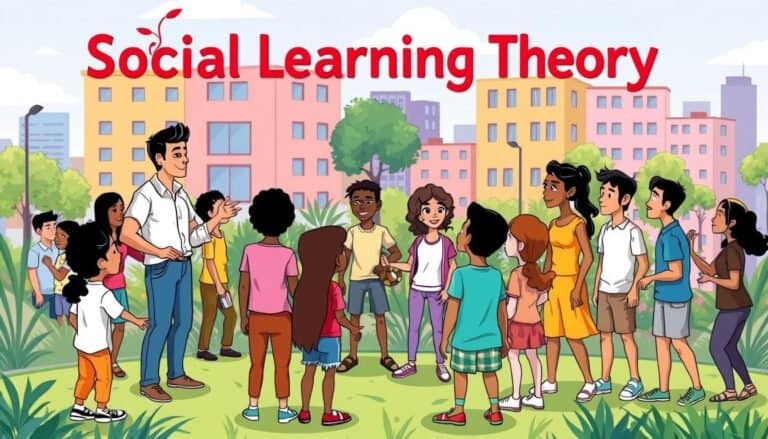Martin Luther King Jr. Personality Type
Martin Luther King Jr.'s personality type was characterized by resilience, empathy, humility, and unwavering determination. His leadership style focused on inspiring social justice through nonviolent resistance and dedication to principles. King's emotional intelligence shone through in his exceptional communication skills, deep-rooted values, and impactful legacy. His profound understanding of nonverbal cues, commanding presence, active listening, eloquence, and charisma resonated with diverse audiences. King's impact extended beyond his lifetime, serving as a blueprint for contemporary activists and a reminder of the transformative power of love and peaceful protest. His personality type embodies a visionary leader who continues to inspire change.
Key Takeaways
- Martin Luther King Jr.'s personality type reflects resilience, empathy, humility, determination, and unwavering dedication to social justice.
- He embodied a transformational leadership style, inspiring change through nonviolent resistance and challenging racial barriers.
- Demonstrated exceptional emotional intelligence with self-awareness, empathy, and impactful communication skills.
- Communication skills included profound understanding of nonverbal cues, active listening, eloquence, and charisma to resonate with diverse audiences.
- His legacy is rooted in deep values of nonviolence, equality, and justice, inspiring generations to stand up for beliefs.
Early Life and Influences
During his formative years, Martin Luther King Jr. was deeply influenced by the teachings of his father, a Baptist minister, and the racial segregation he encountered in the South. King's father, Reverend Martin Luther King Sr., played a pivotal role in shaping his son's values and beliefs. The elder King instilled in young Martin a strong sense of justice, compassion, and the importance of standing up for what's right. These teachings laid the foundation for King's future activism and leadership in the civil rights movement.
Additionally, King's childhood experiences in the racially segregated South left a lasting impact on him. Growing up in a society where racial discrimination was rampant, King witnessed firsthand the injustices faced by African Americans. These experiences fueled his determination to fight against racial inequality and injustice. The adversity he faced as a child helped shape King's resilience, empathy, and unwavering commitment to achieving equality for all. King's early encounters with racial segregation and the influential people in his life played a critical role in molding his character and preparing him for his future role as a prominent civil rights leader.
Core Personality Traits
Shaped by his early experiences and upbringing, Martin Luther King Jr.'s core personality traits embodied resilience, empathy, and unwavering commitment to justice. His resilience was evident in the face of adversity, as he continued to champion civil rights despite facing numerous challenges. King's empathy shone through in his ability to understand and share the feelings of others, fostering a sense of unity and compassion within the civil rights movement.
Furthermore, King's humility was a cornerstone of his personality, as he never sought personal glory but rather focused on the greater good. His determination was unwavering, driving him to persist in the face of opposition and setbacks. King's empathy extended not only to those directly affected by injustice but also to his adversaries, as he sought to appeal to their sense of humanity and moral conscience.
In essence, Martin Luther King Jr.'s core personality traits of resilience, empathy, humility, and determination were instrumental in shaping his role as a transformative leader in the fight for civil rights.
Leadership Style Analysis
Analyzing Martin Luther King Jr.'s leadership style reveals a strategic blend of inspiration and tactical acumen that propelled the civil rights movement forward. As a transformational leader, King had a unique ability to inspire and mobilize people towards a collective vision of social justice. His eloquence as an inspirational speaker not only captivated audiences but also instilled a sense of hope and unity in the face of adversity.
King's approach to conflict resolution was marked by nonviolent resistance and a steadfast commitment to peaceful protest. He believed in confronting injustice with courage and dignity, setting an example for others to aspire to. By advocating for equality and civil rights through peaceful means, King showcased his unwavering dedication to the principles of social justice.
Through his leadership, Martin Luther King Jr. not only challenged the status quo but also galvanized a movement that transcended racial barriers. His legacy as a visionary leader continues to motivate generations to work for a more just and equitable society.
Emotional Intelligence Insights
Revealing nuanced insights into Martin Luther King Jr.'s leadership approach, his emotional intelligence played a pivotal role in shaping his strategic decisions and fostering connections within the civil rights movement. King's exceptional emotional intelligence can be broken down into the following key components:
- Self-awareness and Empathy: King demonstrated a profound understanding of his own emotions and motivations, allowing him to empathize with the struggles of others. This self-awareness helped him relate to the experiences of those fighting for civil rights, making his leadership more authentic and impactful.
- Social Skills: King possessed exceptional social skills that enabled him to communicate effectively, build relationships, and inspire others to join the movement. His ability to connect with people from diverse backgrounds was instrumental in unifying the civil rights cause.
- Self-regulation: Despite facing immense challenges and opposition, King maintained remarkable self-control and composure. His ability to regulate his emotions and responses in the face of adversity allowed him to stay focused on his goals and lead with unwavering determination.
- Impactful Communication: King's emotional intelligence enhanced his communication skills, enabling him to convey his message with passion, conviction, and sincerity. His ability to articulate a compelling vision for a more just society resonated deeply with supporters and adversaries alike, propelling the civil rights movement forward.
Communication Skills Evaluation
Martin Luther King Jr.'s exceptional communication skills were instrumental in fostering unity and driving progress within the civil rights movement. King had a profound understanding of the power of nonverbal cues in communication. His commanding presence, expressive gestures, and unwavering eye contact captivated audiences and conveyed sincerity and conviction. Through active listening, King demonstrated genuine empathy and understanding towards others, making people feel heard and valued.
King's ability to connect with diverse audiences through his speeches was unparalleled. His eloquence and charisma resonated with people from all walks of life, inspiring them to join the fight for justice and equality. Additionally, King's skillful use of language, including metaphors and repetition, not only made his messages memorable but also stirred deep emotions within his listeners.
Impact of Values and Beliefs
Through his unwavering commitment to justice and equality, Martin Luther King Jr.'s values and beliefs profoundly shaped his actions and inspired others to join in the fight for civil rights. Here's how his values and beliefs influenced his behavior:
- Values and Ethics: Martin Luther King Jr. held deep-rooted values of nonviolence, equality, and justice. These principles guided his every action and decision, setting a moral compass for his leadership in the civil rights movement.
- Belief Systems: His strong belief in the power of love and peaceful protest fueled his determination to bring about change through nonviolent means. This belief system not only shaped his personal conduct but also influenced the strategies he employed in the pursuit of justice.
- Behavior Alignment: King's actions consistently reflected his values and beliefs. His speeches, protests, and campaigns were all driven by his unwavering commitment to his principles, showcasing a remarkable alignment between his beliefs and behavior.
- Inspiring Others: By living out his values and ethics, Martin Luther King Jr. inspired countless individuals to stand up for what they believed in, fostering a movement that continues to impact society today.
Legacy and Continuing Influence
Reflecting on Martin Luther King Jr.'s enduring impact and ongoing influence reveals a profound legacy that continues to shape social movements and inspire change. His influence on civil rights and social justice perspectives remains significant today. King's unwavering commitment to nonviolent resistance and equality continues to inspire individuals and organizations worldwide to advocate for justice and equality.
King's legacy is evident in the continued push for civil rights and equality across various social justice movements. His speeches, such as the iconic 'I Have a Dream' address, still resonate with people aiming for a more just society. The principles he championed, including peaceful protest and the power of unity, serve as guiding lights for those seeking to address systemic injustices.
Moreover, King's influence extends beyond his lifetime, with his words and actions serving as a blueprint for contemporary activists. The ongoing relevance of his message underscores the enduring power of advocating for social change through nonviolent means. Essentially, King's legacy serves as a reminder of the transformative impact one individual can have on society when driven by a passion for justice and equality.
Conclusion
To sum up, Martin Luther King Jr.'s personality type can be described as visionary, empathetic, and courageous. Despite any criticisms of his leadership style, his unwavering commitment to nonviolent resistance and equality for all continues to inspire generations.
While some may argue that his methods were too passive, it's important to recognize the profound impact he had on the civil rights movement and the lasting change he brought about through his dedication and perseverance.








